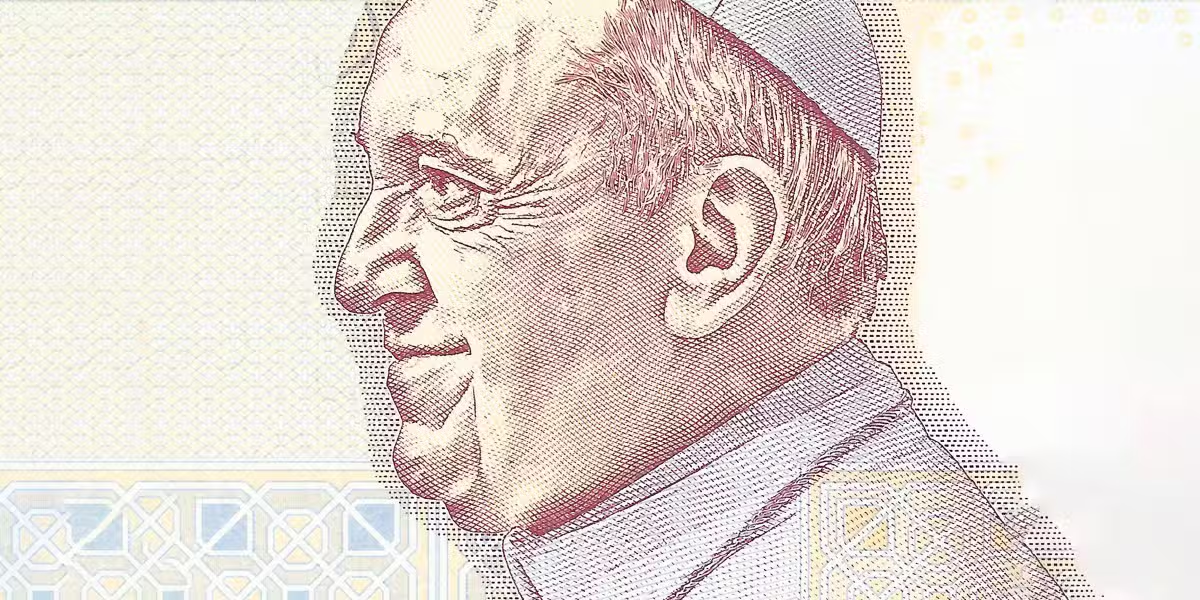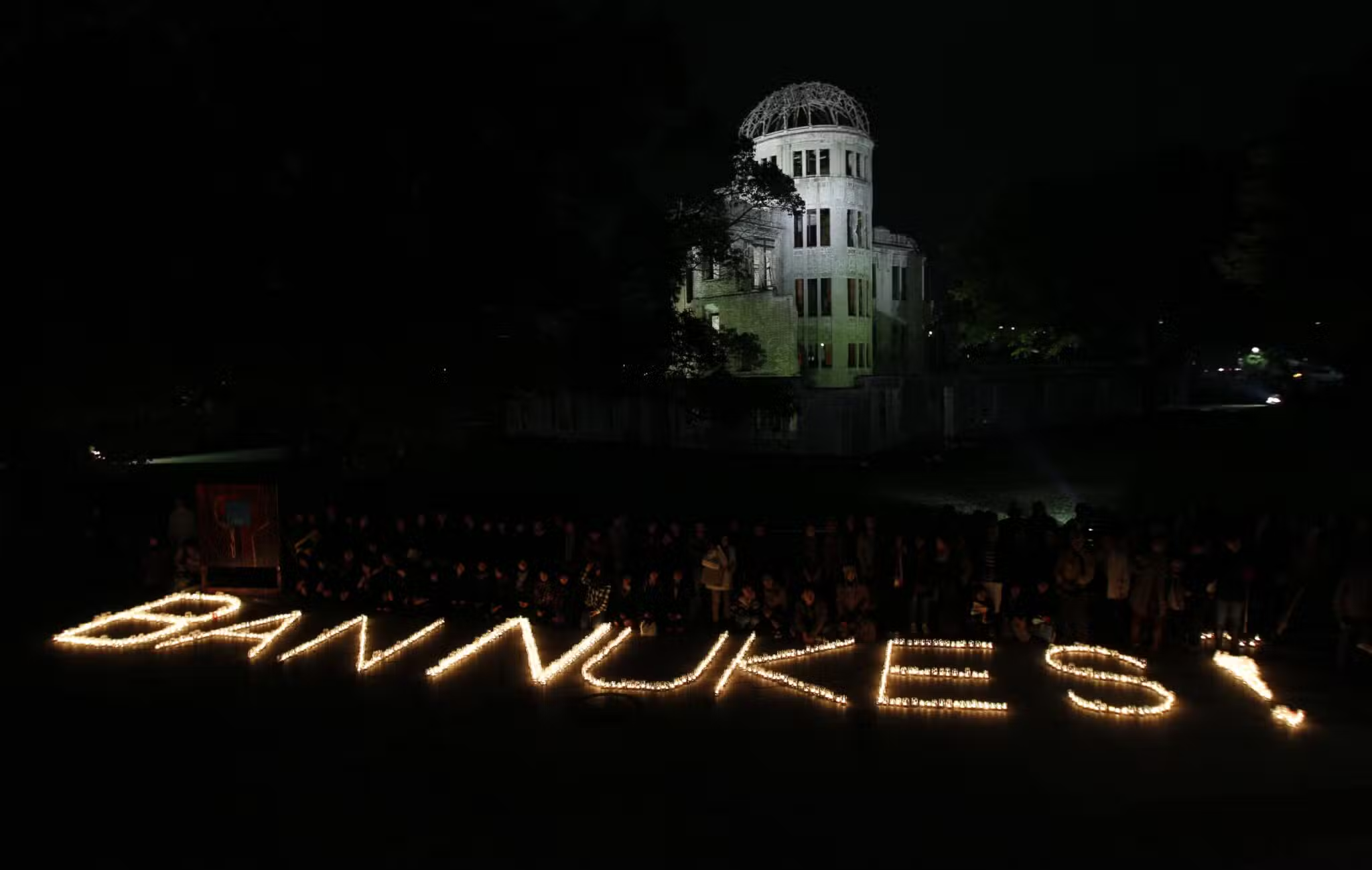During a recent interview, Pope Francis raised the possibility that no one is in hell. Really? If so, doesn’t that mean, “Anything goes”?
In his January 20 “Letter from Rome” for La Croix International’s e-newsletter, Robert Mickens wrote that the issue of hell was raised by Fabio Fazio, the host of a Sunday evening TV show seen six days earlier by 3.4 million Italian viewers. Cindy Wooden, head of the Catholic News Service Rome bureau, soon described the Internet controversy that the interview ignited.
Fazio asked Pope Francis how he imagines God. “Like a generous father,” the pope responded, citing the prodigal son parable (Lk 15:11–32). Pope Francis said that he believes “in a God who is not scandalized by our sins because he is a father and accompanies us.” The pope asked: “Does God accompany sinners or immediately condemn them to hell? No, he chooses to accompany us. . . . So it’s hard to even imagine hell, a father who condemns someone for all eternity.” The pope said he hopes that hell is empty.
In fact, we cannot believe in hell in the same way that we believe in the God described in the Bible. The former is a possibility while the latter is a fact.
Is it “anything goes?” Clearly not, but creation and our moral universe are held together by a compassionate God rather than by fear of eternal damnation.
Who Wrote the Our Father?
This question arose during a family dinner. Thanks for whatever light you can shed on this.
In fact, there are two versions of this (Mt 6:9–13 and Lk 11:2–4). The longer version is better known. Each version was presumably used in Matthew’s community or Luke’s community. Like stories passed on in a family, sometimes there are two versions, each one “real.”
Your question raises another two: What does a Gospel represent? Is it, in fact, the equivalent of a court reporter’s transcript or something else? Although the Gospels contain many historical facts, primarily they seek not to list facts but instead to deepen a faith already embraced by their readers.
This month marks the 50th anniversary of the Pontifical Biblical Commission’s (PBC) instruction on the historicity of the Gospels. That text identifies three stages in the composition of each Gospel: 1) the actual events in Jesus’ life, 2) how those events were preached by the apostles, and 3) the writing of a Gospel for a particular community. This sequence challenges the fundamentalism (among Catholics and others) that insists on seeing the Gospels as basically a list of historical facts. Search for the full text via “historicity of the Gospels” and “April 1964.”
The PBC instruction helped to draw up Vatican II’s “Constitution on Divine Revelation,” the document with the longest gestation period between its initial presentation at the council (October 1962) and its final approval (November 1965). That text’s many revisions were worked out by the council’s best theologians.
The initial draft spoke of “two sources” of revelation: Scripture and tradition. “Sacred tradition and sacred Scripture,” says the final text, “are bound closely together and communicate one with the other. For both of them, flowing out from the same divine well-spring, come together in some fashion to form one thing and move toward the same goal” (9).
What is said in the PBC’s “historicity” instruction applies in some way to all of Scripture (Old Testament and New Testament). If Scripture is simply a “You-are-there account,” then why does the Book of Genesis open with two very different creation stories (1:1—2:4b and 2:4b—3:23)? The person responsible for the final text did not accept one account as genuine and discard the other as not genuine.
The Bible contains other seeming contradictions. Did King Saul die by suicide (1 Sm 31:4) or was he killed by an opponent who mistakenly expected King David to reward him (2 Sm 1:6–15)? Was an angel at Jesus’ tomb sitting outside (Mt 28:2) or inside (Mk 16:5, Lk 24:4, Jn 20:12)?
A relentless either/or approach eventually distorts Scripture and suggests it is untrustworthy. The faith community always plays a key role in interpreting Scripture—indeed, in telling us which writings belong in the Bible!
Explaining the Catholic ‘And’
In one of his retreat talks for members of last October’s synod in Rome, Father Timothy Radcliffe quoted Karl Barth’s expression “the Catholic ‘and.’” I’m intrigued by it and uncertain what it means.
The Catholic Church uses “both/and” language whenever possible, reserving “either/or” for situations that genuinely require it. Some people, however, prefer the latter to save time and reinforce their self-assurance.
My response to the previous question draws on that “and.” In fact, what Karl Barth linked to Catholicism should probably be described as “the biblical ‘and’” because the Bible often frustrates people who see the world only through either/or lenses, eventually creating false oppositions.
Bothered by seeming contradictions in the New Testament, Tatian (c. AD 120–180) put together a book called the Diatessaron to iron out Gospel discrepancies.
He was very scandalized by what he considered highly evocative or ambiguous language. His text is interesting but quite subjective because his desire for clarity dictated what to include or exclude.
Either/or language works well with some subjects but poorly with others. An engineer designing a bridge needs to be very clear about weight limits, the road’s ability to expand or contract depending on heat, and other factors. A physician prescribing medications must pay very close attention to how they interact with each other.
Poetry, of which the Bible has a great deal, however, relies heavily on both/and language. Can anyone craft an effective marriage proposal using only either/or language? Doesn’t human growth frequently require accepting and working with ambiguity? Isn’t that a key part of effective parenting?
Ask a Franciscan appears monthly in St. Anthony Messenger.









3 thoughts on “Does Pope Francis Believe in Hell?”
I think Hell is nothing more than the absence of Jesus. But is there an actually place for Satan and his minions? If there is, so what? Hell is not that bad of a place if a person belongs there. Remember, the greatest gift God has given man is a free will. The free will to either accept or reject Him. I would think that the one thing that makes Hell so disconcerting is knowing that there is a Heaven. A place those in Hell cannot reach. But why, you may ask? Why should that trouble those in Hell. Because of their hatred of God and jealousy of those that are with Him. Why should they be jealous? Because hatred and jealousy all go together. That’s why people who are full of hatred are unhappy people in this world and definitely in the next.
There is a place for the devil and all his minions and followers, it is the Lake of Fire (see Rev. 20:10,13-14; 21:). The devil will be the least regarded in the place of torment (he is not its ruler – see Isaiah 14: 8-17, etc.)
If hell is not a deluge and overwhelming onslaught of unspeakable and eternal sufferings, making the guilty feel the whole weight of the hand that chastises them, then, in the fight between good and evil, man will forever be the victor; and the Lord of heaven will be the loser; every knee will not bend before Him as He foretold.